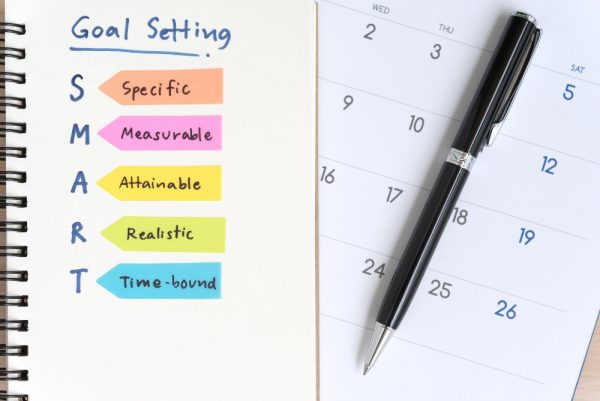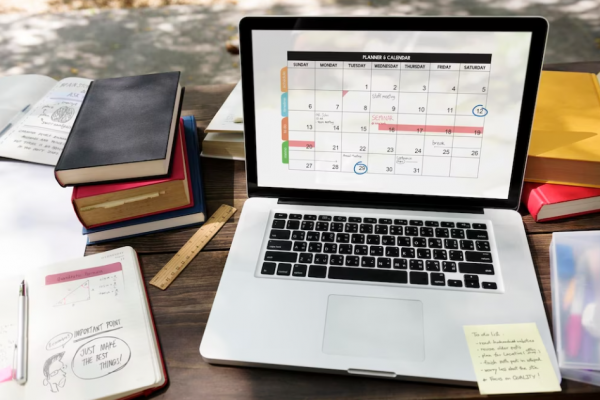Being a student comes with its fair share of responsibilities, from attending classes to completing assignments and everything in between. But managing your time effectively can help you stay on top of things without feeling overwhelmed. In this article, we’ll cover the importance of time management and some simple yet powerful tips to help you master it and succeed as a student.
The Importance of Time Management
Time management means figuring out what’s important, setting goals, and making sure you give yourself enough time to do everything you need to do. Good time management helps you stay on track, meet deadlines, and still have time for the things you enjoy.
When you have got a good handle on your time, everything just seems to fall into place. You are more likely to get better grades, feel less stressed out, get more stuff done, and even have time for personal growth.

When you can prioritize your tasks effectively, you’ll find yourself studying smarter, meeting deadlines with ease, and still having time left over for fun stuff like extracurricular activities. Plus, you’ll actually have a life outside of school, which is pretty important for staying sane.
But it’s not just about getting through school. Mastering time management teaches you some seriously valuable life skills, like being disciplined and accountable. Those skills will come in handy long after you’ve graduated. Whether you’re tackling a big project at work or just trying to stay on top of your personal life, knowing how to manage your time like a pro will set you up for success.
Time Management Tips For Students
Many students find themselves struggling to keep up with assignments and exams. But here’s the good news: mastering time management can help you sail through these challenges with ease. These are some tips and tricks that will help you do just that.
1. Set Clear Goals
Start by setting clear goals for yourself. Break down your tasks into smaller steps and set achievable targets for each day, week, and semester. Having a roadmap will help you stay focused and motivated.

2. Prioritize Tasks
Not all tasks are created equal. Learn to prioritize your to-do list based on what’s most important and urgent. Focus on tackling high-priority tasks first, then move on to less urgent ones.
3. Task Evaluation
Task evaluation is about knowing how much time each task on your to-do list will take. By figuring out how long things will take, you can plan your time better, avoid rushing, and make sure you’re not trying to do too much at once.
4. Time Blocking
Time blocking means assigning specific time slots for different tasks throughout the day. This method helps you stay organized and focused by ensuring dedicated time for each activity, like studying, classes, exercise, and relaxation.
5. SMART Goals
Make sure your goals are Specific, Measurable, Achievable, Relevant, and Time-bound (SMART). Clear goals provide direction and motivation. For example, instead of saying “improve grades,” set a goal like “achieve a GPA of 3.5 this semester by studying one extra hour daily.”

6. Create a Schedule
Having a schedule is key to staying organized. Use a planner or digital calendar to map out your days, making sure to allocate time for classes, study sessions, assignments, and downtime.
7. Beat Procrastination
Procrastination is the enemy of productivity. Break the habit by starting small and gradually building momentum. Try techniques like the Pomodoro Technique to stay focused and on track.
8. Minimize Distractions
Identify and minimize distractions that derail your focus. Find a quiet study space, turn off notifications on your devices, and use apps or website blockers to limit time spent on distracting websites and social media.

9. Use Effective Study Techniques
Make the most of your study time by using proven techniques like active recall and spaced repetition. Experiment with different methods to find what works best for you.
10. Learn to Say No
Saying “NO” is a much-needed time management tip for students. It’s okay to say no to social events or commitments that interfere with your academic priorities. Set boundaries and prioritize your time accordingly.
11. Review and Adapt
Regularly review your time management strategies and make adjustments as needed. Learn from your experiences and be willing to try new approaches.
12. Avoid Multitasking
Multitasking often leads to decreased efficiency. Contrary to popular belief, it doesn’t save time; it often wastes it. By focusing on one task at a time and completing it before moving on to the next, you can better prioritize your workload and manage your time more efficiently.

13. Use Tech Tools
Whether it’s a simple calendar app or a more advanced task management tool, using tech tools can really help you manage your time better and get more done without stress. They keep you on track by sending you notifications and helping you stay focused on what needs to be done. All you have to do is choose the right one for you.
By incorporating these simpler strategies into your routine, you can better manage your time as a student, reduce stress, and achieve your goals effectively.
Effective time management is a skill that can make a world of difference for students. By setting clear goals, prioritizing tasks, and minimizing distractions, you can stay organized, reduce stress, and achieve your academic and personal goals with confidence. Start implementing these tips today and watch your productivity soar!
Did you find this helpful? Please tell us in the comments.
You may also like: Master Your Mind: 8 Tips for Improving Mental Focus



